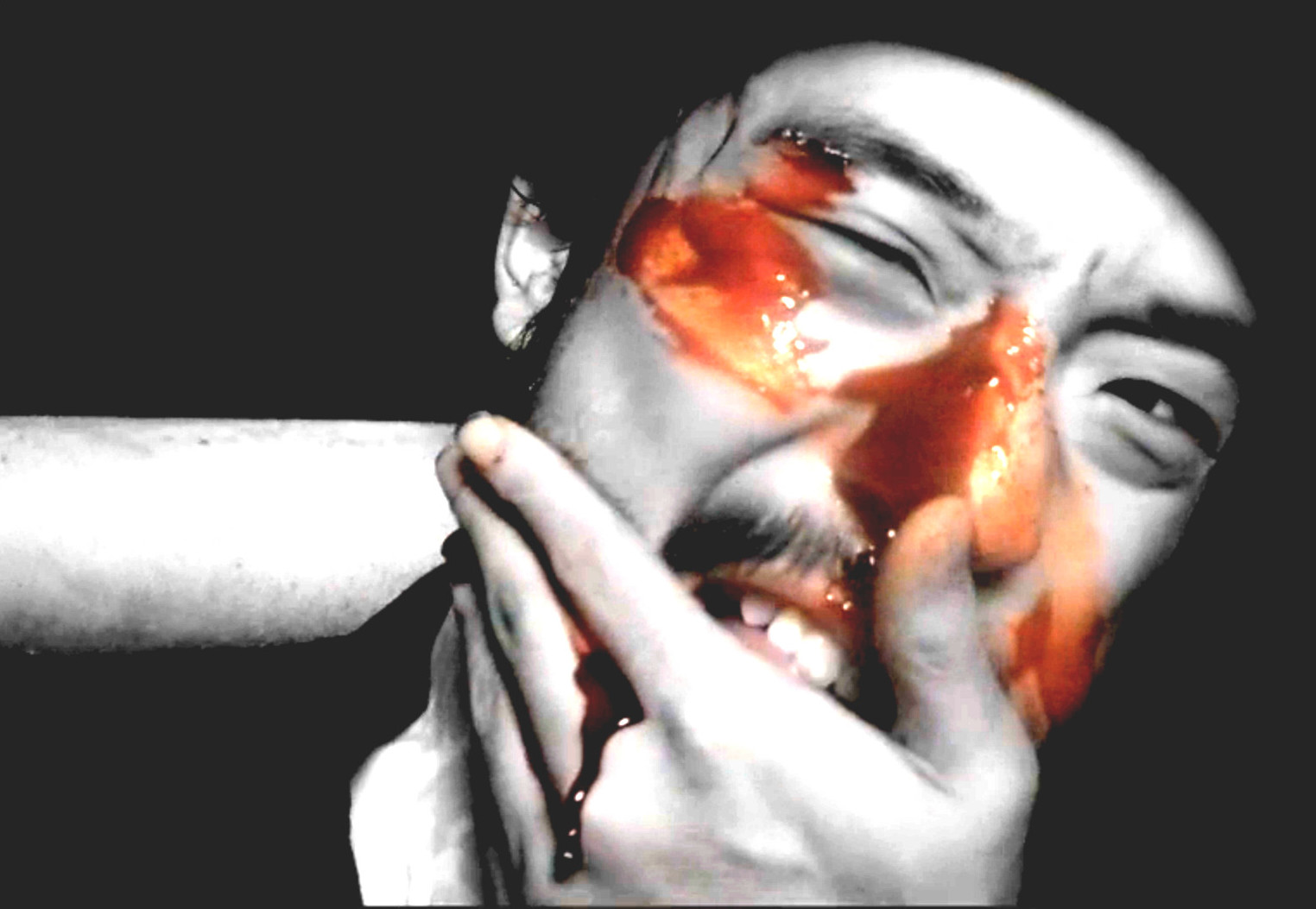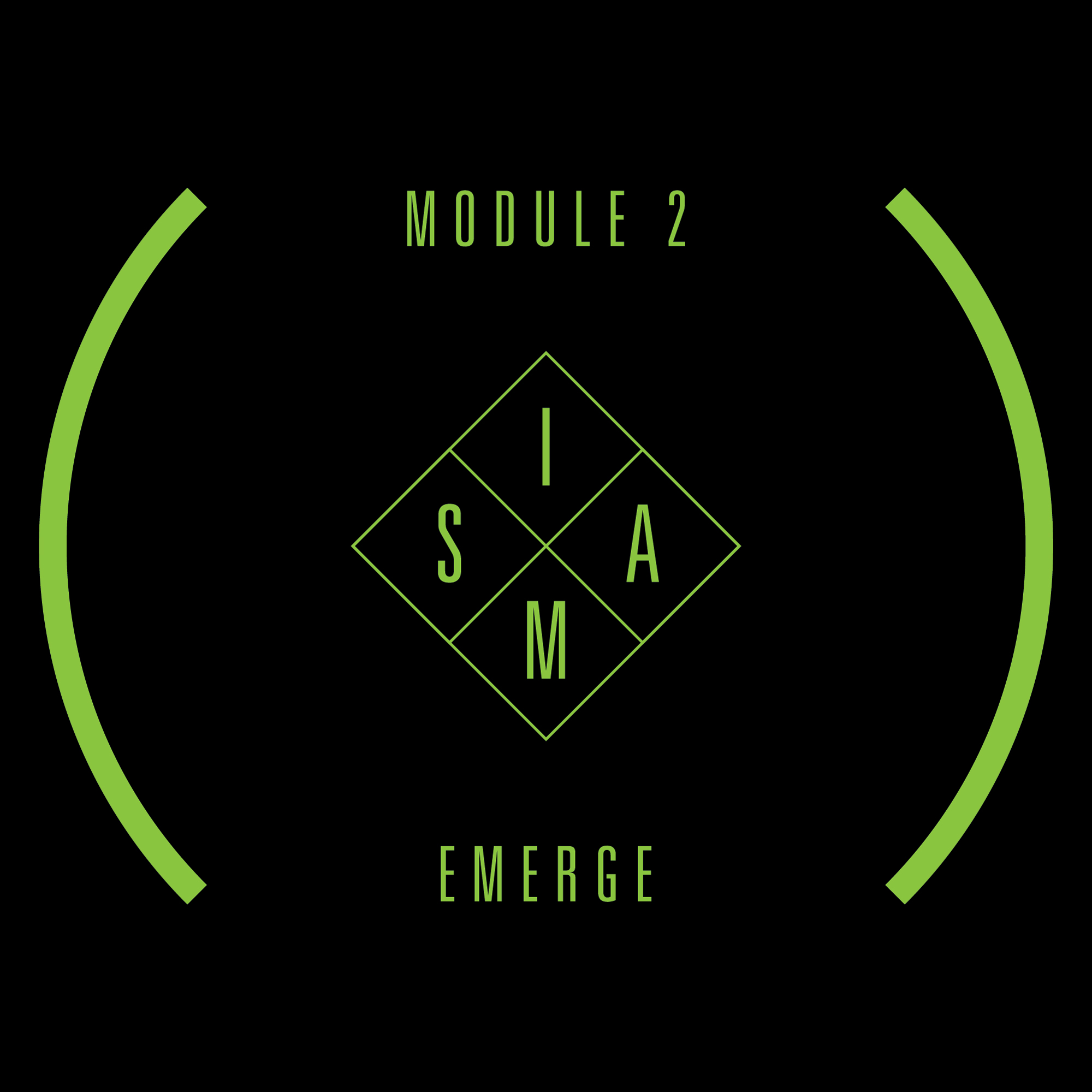采访:Amen Dunes Interview
By Josh, 2011年 11月 21日
《 看中文采访 》
[+] 豆瓣页面 douban event page
Amen Dunes is the recording name of Damon McMahon, an intensely personal solo project that started as a set of private recordings and has slowly emerged from Damon’s inner mental spaces to critical acclaim in the outside world. China plays an important role in the development of Amen Dunes’s music: After recording his first album while sequestered in the Catskill Mountains, Damon moved to Beijing in 2007 to decompress from the New York music scene. In the two years he lived here he was in effect a New Weird American ambassador to China, at first working with Modern Sky but soon taking on projects of more personal significance, such as producing the second Re-TROS album and exchanging music and ideas with the small set of musicians he could find with similarly left-field sonic inclinations.
Besides recording sporadic, improvised takes in his Beijing apartment — later released by New York’s Sacred Bones label as Murder Dull Mind — Damon didn’t work much as a musician in China. Now he will return for a small tour in support of his new LP, Through Donkey Jaw (also Sacred Bones). He’ll play two Beijing shows: Zoomin’ Night at D-22 on Tuesday 11/22, and a pangbianr show @ Raying Temple on Friday 11/25. Read an extensive interview about his take on the Chinese music scene and stream some Amen Dunes jams below:

Amen Dunes – Christopher by sacredbones
pangbianr: What are your previous experiences in China? How many times have you visited, when, for how long, for what purpose, etc?
Amen Dunes: I first came to China when I was a junior in college, for study abroad. I spent a semester in Taiwan where I basically just fucked around and then I spent a semester in Nanjing where I was a little more serious about it, Chinese, China, etc. That was in 2000-2001.
Then in 2007 I moved back to China, that time to Beijing, where I spent the next 2 years or so. I came to work for Modern Sky, I wanted to start a subsidiary label to put out weird American bands, but I one, realized there wasn’t much of a market for it and it would be pretty difficult financially at that time, and two, I realized I hated the music business (and wasn’t very good at playing businessman either).
Other than these two main trips, over the years I’ve come to China to visit for a few weeks or so about 4 or 5 times.
pbr: A big part of the “Amen Dunes mythology” pertains to those years you were in China… label descriptions and blogs paint a picture of a modern folk troubadour seeking new inspiration as a stranger in a strange land, then returning home rejuvenated from his quest. While it was admittedly a big leap from New York to China, in reality you came out to work for China’s biggest mainstream independent record label, the equivalent of working for Matador or Sub Pop in the US. Leaving aside the fact that labels and blogs have a vested interest in making things look sexier on paper, I feel these descriptions reflect a total lack of reference points for China and Chinese music on the part of most Western writers, label runners and musicians. As someone with experience on both sides, what would you say is the main impression people in the US have of underground/weird Chinese music, or is there even one? Have you seen that change at all since you’ve returned from China? I know you have recently been researching Chinese underground music for some writing gigs… have you done other work to promote or share your knowledge of Chinese music abroad?
AD: Well, it was kind of like that, in fact. Though I technically did come over to work for them in Beijing, I arrived to discover that there was barely anything for me to do and that the plans of my own to collaborate with Modern Sky that I had discussed before I arrived there had pretty much been forgotten on arrival. I only came in a few days a week, and eventually stopped working there, so more than half my time in China was left with an incredible amount of free time (it also helped that I lived in a shithole and didn’t pay much rent). So although it is very true that the blogs etc like to paint an excessively dramatic picture without knowing much of the facts, the facts were, if they had known them, actually kind of dramatic. Not so much in my Beijing life, but because I had so much free time to travel around the country. I almost spent half my time traveling around China in a lot of random places, and it was in those experiences in China that I found inspiration and a strangeness, if you will.
So I think it was actually right, what they said, but not because they actually knew what they were talking about.
Western music writers think Beijing is really exotic and weird, when it was really Tashkurgan or a spot like that that was the source of weirdness.
So I guess, yeah people in the Western music world just hear “China” and go “whoah…” when they don’t realize there is a variety of “China’s.”
As far as their impressions of the underground scene, well I’m not sure how much of one there is…It’s hard to say. I almost think the mainstream American media has more of an impression of the Chinese underground than the American underground does. It’s an easy thing to sensationalize in the Western press, and they love to do that, but I don’t know of that many people in New York, for example, who are even aware an underground Chinese music scene exists.
And I wish I could say that has changed since I’ve returned to the US but I don’t think it has that much…
I think one good thing to do is to bring more underground American and European bands over, that’s how the word will spread in the Western underground. There is nothing wrong with more indie-ish bands coming to China to play, but I think it would be cool to bring more underground bands over – would be cool for the bands and for the Chinese audiences. Everyone I know would jump at the chance to come to China.
I wish I could say I’ve done more to promote my exposure to the Chinese underground, but I haven’t really. A great way would be to set up a tour of weird American bands in China – that would be a proper cultural exchange.
pbr: How did you initially become aware of the Chinese underground music scene? What are some of the first Chinese bands or artists that caught your interest?
AD: I first was aware of it when a friend who worked at Fader mentioned this label, Modern Sky, was looking for an American to collaborate with, that was in 2006. I had no idea of anything when I first came over in mid-2007. Soon after arriving there though I was introduced to the guys in Re-Tros by a mutual friend. I didn’t expect much but when I saw them I was really pleasantly surprised. They were just so much more hardcore and dedicated then most bands in the States at that time, so much more serious and severe about it all, I loved it. They were super negative and insular and on top of their shit musically, I thought they were great.
They were really the band that I was mostly into, though I also liked this guy Liu Ge’s whole vibe, I forget his band name [editor’s note: The Molds], but he was the other person that felt pretty for real.
pbr: What was your role in producing the second ReTROS album? How did that collaboration come about?
AD: We were pretty good friends and so at one point Hua Dong just asked me if I would be interested. My role was pretty hands-off for the most part, being a musician I kind of hated the idea of “producers.” It’s pretty much nonexistent these days in the US, it’s kind of frowned upon actually, so I was a bit uncomfortable with the idea. I guess as a musician it’s kind of like you could use an engineer to do the things you’re not necessarily capable of doing yourself, like miccing a room or instrument properly, or working the equipment, but a producer whose job it is to come up with musical ideas I’ve always kind of thought was superfluous or even inappropriate, like why the fuck would I need some other guy to come up with ideas for parts and changes, etc.? So even though they came up with the idea, and I thought it would be fun, I tried not to mess with their music. It’s there’s not mine, after all (as much as I would have loved to apply a bunch of weird ideas to the record).
I brought my friend Charles Burst (The Occasion) to Beijing to record it, so we essentially co-produced it.
pbr: How would you compare the Beijing music scene with your home base of New York? I know this is a pretty stupid question, but what are some major differences (or similarities) that stand out to you?
AD: I guess the first thing that comes to mind is the scene in NYC is professionally harsh, if that makes sense, in a way that is kind of unparalleled. Everybody has heard everything, from the crowds to the bands, so if it’s not good or at least new-sounding, people aren’t interested. At the same time I think because people in NYC are so broadly exposed to music, there is also a better chance there of people getting what you’re doing even if it doesn’t fall within a certain category or style – though you can easily find yourself playing to audiences that only are fans of a certain style or scene, so you have to make sure you’re playing on the right bill or to the right audience. It can be tough.
Another difference is by virtue of the fact that the NYC music scene has just been around longer and has had more time to develop, I would say on average a band in NYC is maybe farther along development-wise than an average band in Beijing, but it’s kind of an unfair comparison, there’s just been more time for that to happen in NYC.
I really prefer the vibe of the audience in Beijing though. People are so enthusiastic, even if they’re watching something that doesn’t exactly line up with their record collection. I’ve never been a musician in Beijing, so I can’t say from experience, but it seems like it’s a lot more nuturing than NYC.
pbr: I read in an interview you did on the Altered Zones blog that Beijing didn’t really influence the music you recorded while living here. I’d like to dig a bit deeper here… it seems there must have been some influence, if not musical or stylistic then maybe philosophical or just logistical. For instance, whereas in the US it’s easy to find a cheap bedroom studio, there isn’t much of a recording culture in China, nor was there an obvious venue or scene where Amen Dunes would have fit in from 2007-2009… What were your experiences living, composing and recording as a musician in Beijing? Did you practice or play shows often, or was it more of a bedroom music vibe? If you played out, where would you play and with which bands did you feel an affinity? Most of the songs on Murder Dull Mind are single, improvised takes… was that a product of your personal development as a musician or was there something about the condition of your life in Beijing that contributed to this composition/performance style?
AD: I think a way to qualify that would be that the Beijing music scene didn’t influence my music, but that Beijing the city and people did.
First, like you said, there was a logistical limitation. I record all my records on an old tape machine, so obviously I couldn’t do that in China, I had to use my laptop. But I also couldn’t bring amplifiers over or synths or lots of pedals either. So, I was left with the basics for the most part, which was my computer and an acoustic in my apartment. That is a big part of where Murder Dull Mind came from.
The other element was I came to Beijing in part to get away from the New York music scene that I had been a part of for 5 or 6 years at that point. I had no desire at all to be an active musician at that point, in China or anywhere. I was burnt out. So save one random time at D-22 I didn’t perform at all. Also, though DIA was recorded in 2006 before my departure for China, it didn’t come out on Locust Music until 2009, so Amen Dunes didn’t really exist when I was in China. It was only a private project that I just did for myself. So everything I recorded in China was simply for me, with no intention of existing out in the world, in a scene, or anywhere.
Another super big factor is being a foreigner, an American, in China makes you obviously feel, or made me feel at least, nostalgic at times not really for America the place, because I loved and felt at home in China, but for my American identity. I started to get this need to preserve that identity. So because of that, my love for the music I grew up with when I was a kid and into my early teens – roots music, psych music, country music, folk music – kind of blossomed over there (I even have a bunch of weird covers I did of old American songs from when I lived in Beijing). I found myself wanting to just write quieter more direct songs that tied into those roots. That’s why Murder Dull Mind is stripped down and more song oriented and folk feeling. And that feeling of being separated from yourself when living abroad came out in the songs as well, there was some feeling of distance that I felt while in China that I think you can hear on that record.
As for the improvised nature, the first two Amen Dunes records were almost all improvised songs, where I would just press record and start to play chords and sing, so Murder Dull Mind just continued in that vein.
pbr: Could you talk more about your attempts to release/promote weird American bands in China? Did you have a good sense of what interest there was on the Chinese side about discovering these bands?
AD: Back in 2006 when I had the idea there was basically no interest in weird American music in China. This was just before, to the best of my knowledge, blog music culture from the US really started to seep into China, so only a small handful of people in China knew obscure music. I remember getting basically set up with this random dude on the 4th ring road to have dinner just because he had heard of Les Rallizes Denudes or something. We spent basically an hour just saying “Do you know xxx…?”
Also, at that point “noise” music, whatever the hell that means these days, wasn’t really that mainstream like it is now in the US music world. So that kind of Altered Zones culture wouldn’t have brought over extremely weird music to the Altered Zone equivalents in China, at least not the kind of things I wanted to reissue.
I think nowadays it’s probably almost doable, but Im a shitty businessman so what do I know. But I feel the two internet music cultures have so much crossover, that you could maybe get away with selling something like a Not Not Fun release over in China as long as it had some collectable feel to it that couldn’t be diminished by the ability to download it in 60 seconds.
I think it still might be a labor of love, unfortunately, but who needs money anyway!
Amen Dunes will play in Beijing on Tuesday 11/22 @ D-22 and Friday 11/25 @ Raying Temple.
[+] 豆瓣页面 douban event page
中文编译Lulu Chow
Amen Dunes是Damon McMahon的录音代号,由私密录音作为起始,一次浓烈的个人独奏计划已经从Damon的内心世界中隐现出来,通过热情媒体,外面的世界才知道。中国在Amen Dunes 的音乐发展过程中扮演着催化剂的重要角色:他曾孤身一人隐居在卡茨基尔山,录制了自己的第一张专辑。为了摆脱纽约音乐圈的聒噪和压力,2007年他来到北京。在北京的两年间,他励志做一个美国怪诞乐团们“New Weird American”在中国的行销大使,起先在摩登天空工作,而后逐渐自己独立展开实践:制作了重塑雕像的权利的第二张专辑,并一路寻找同道,展开深入民间的两地音乐文化交流。
除了不定时的录音,当时他在北京家中录的即兴段落也被纽约的恐惧骨头厂牌发行,名为Murder Dull Mind——Damon在中国没有以乐手的身份出现过。现在他以巡演的方式回到这里,带着他自己新发行的全长专辑Through Donkey Jaw。接下来他会在北京演两场:11月22号(周二)在D-22的燥眠夜和一个旁边儿组织的演出,11月25号(周五)在小雷音。以下就是我们为他做的一期专访,另附有试听。

Amen Dunes – Christopher by sacredbones
旁边儿: 你可以简单概括一下你之前来中国的经历吗?来的次数、时间,分别停留了多久,包括每次来的计划和动机。
Amen Dunes: 我第一次来中国的时候我还在读大学,来中国就是为了留学。第一个学期先是在台湾读的,感觉就是各种操蛋,当时完全是玩票的心理。然后下个学期我去了南京,那时才逐渐开始认真起来,对学中文也好,对整个中国也好,总算真正在态度上有了一个转变。这就是2000~2001年间的经历。
2007年的时候我回到中国,在北京待了两年多。我去了摩登天空工作,我当时想要创立一个附属厂牌,把美国所有比较好玩的、怪异的乐队放进去。但后来也意识到根本不靠谱,首先,或许根本没有一个成熟的市场条件来维持厂牌的运营,而且在那个时候,融资也确实很困难;其次就是我也发现我自己真的很讨厌做音乐营销,也完全没有任何商业头脑。
2009年离开中国之后,我回来过4、5次,每次呆几个星期。
旁边儿: “Amen Dunes 神话“的最主要的部分是关于你那几年在中国的生活……厂牌的介绍和博客描绘出了一幅行云流水般的画面——游吟当下的民谣诗人正在一个陌生的土地寻找新的灵感,而后回归母体,并在回望中发现新的起点。从纽约到北京,很多人把你的经历看的很疯狂。但实际上,来到北京,为中国最大的主流独立厂牌工作,就好比在纽约为Sub pop厂牌工作一样。我想说的是,据我观察,人们把你的体验平面化,特别是西方厂牌和博客旗下的写手们,携带与政治专栏相同的病菌,大肆夸大这种在中国的体验,只是为了让人们在阅读的时候获得更大的快感。事实所展现给我们的一向如此,媒体喉舌的类型化表述也恰恰暴露了自身的肤浅与苍白,对当代中国文化的白热化关注使得一切事物被标签化,并在瞬间转为浅尝辄止的旅游式推销。。一切都被广告化了,很难看到诚实与深入的挖掘。基于你在太平洋两岸获得的双重体验,你能告诉我,对于现今中国地下五花八门的音乐场景,西方对此有没有获得一个普遍的认识,还有你觉得自从你回到美国之后,之前说到的那种夸张的报道有何改观?我知道你最近也正在通过写演出评论来思考中国地下音乐的现状,你在国外做过其他针对中国音乐的推介吗?
AD: 恩,首先你说的那种夸大事实的事情是存在的,但是话说回来,我在中国的经历有过那么一段,也确实算是比较动荡。尽管我在表面上作为摩登天空的一员,在北京开始我第一份稳定的工作,但是后来我发现其实在那里根本就没有什么具体的事情给我做,和我没来之前跟他们谈的完全不一样。我一个星期只去几天,然后逐渐就离开那里了,所以我在中国超出一半的时间都是闲着没事干(蜗居在我简陋的出租房里,也不用为房租发愁)。即便博客等平面媒体乐于戏剧化我的个人经历,当然他们也没有任何真实的了解。但恰巧,如果他们真的来到这里,看到我所经历的,恐怕还真算是蛮戏剧的。北京还不算太戏剧,真正戏剧性的体验在北京以外的广阔天地,我的空闲时间给我最大的好处就是让我可以四处旅行。我花了一多半的时间游走中国各地,就是在旅途中的体验让我找到了更多的兴趣和灵感。
所以就此来说,媒体的夸大其词其实恰好蒙对了,即便事实上他们什么也不知道。
西方音乐写手认为北京是超级赋有异国情调而且怪诞的,但是要知道等你真正面对像新疆塔什库尔干这样的地方,才会知道什么是真正的怪诞。
所以我觉得,的确,西方做报道的方式一向是听到有人喊”中国“就跑过去接着喊”哇赛”了….即便他们根本不知道这个大国有千面。
对于他们眼中的中国地下音乐圈,我不太确定是不是有一个具有代表性的看法,很难说。我觉得美国主流媒体更愿意给中国地下文化贴上各种各样的标签,把一切都简单化,而对于美国本土圈子则不会这么随性。简而言之,西方传媒,出版界一向愿意去这么做,但是我不知道有什么人在纽约专门干这个,大多数人都对中国地下音乐鲜有耳闻。
而且我奢望自己能够告诉你,我回到美国之后,这里的整体气候有所改变,当然可能多多少少有,但还没有达到一种显而易见的地步。
我觉得最好就是把更多的欧美地下乐队介绍到中国来,这是吸引眼球,万里传音给锋芒的西方世界的最佳途径。像现在,越来越多的美国独立流行团过来就是一个很好的现象,但是我觉得更应该把目光着眼于地下乐队,不管从哪方面讲,对两地乐队和观众来说都是全新的体验。有时候我就感觉,起码我认识的每一个人都应该抬屁股来中国。
我倒是希望我可以说,对于中国地下音乐,我已经尽我所能做了很多的宣传,但是我确实还没有做到那么充分。我目前希望就是,搞一个美国地下乐队在中国的集团式巡演,因为这是目前为止最省时省力的文化互济。
旁边儿: 你在一开始是怎么接触中国地下音乐的?对哪些乐队和艺术家感兴趣?
AD: 早期的接触比较偶然。2006年,我在Fader工作的朋友跟我说摩登天空那时正好缺一个美国人帮忙,我就去了。可以说算是一个契机吧,把我引入这个环境中去,但是从我第一次来北京一直到2007年中,我其实什么都不知道,对这里的一切还是一无所知。我到了摩登之后,一个朋友把我介绍给重塑。我当时也没期待什么,直到当我看到他们演出的时候我还是惊了。他们要比同时期美国所有相同风格的乐队更加生猛露骨,也更严肃分裂,我就是特别喜欢这种感觉。他们当时极度的消极而且孤傲,综合他们在音乐上的感觉,我觉得他们是最棒的。
他们真的是特别合我的胃口,尽管我也喜欢刘舸那种感觉的,我忘了他乐队叫什么了 [编辑:The Molds],他是另一个让我觉得很真实的人。
旁边儿: 你在制作重塑的第二张专辑的时候,你的角色是什么?合作是怎么进行的?
AD: 我们都是特别好的朋友,然后华东就问我有没有兴趣做。我给我自己的角色定位就是——我不干涉核心部分,作为一个音乐人我也比较讨厌“制作人”这个头衔。这种职业似乎在现在的美国地下音乐圈已经越来越不被重视了,实际上已经开始逐渐地要被消解掉了,乐队在想法上已经可以更独立,需要的只是一个纯技术控来做助手而已。所以当这个头衔强加在我身上的时候,我感觉的确有点不太爽。因为我认为自己也是一个音乐人,我可以找一个工程师来做一些你觉得不重要的,不牵扯你想法的工作,像安置麦克风,布置棚里棚外,规划器材和配件,以及硬件操作,但是如果一个制作人要在创作上对乐队的想法进行干涉的话,我觉得就很没有必要了,比如为什么你会需要另外一个人来改变或者透支你自己原生的热情和智慧呢? 所以即便是乐队突然有一个新的想法,作为一个定着“制作人”头衔的我,会觉得这个想法可能很有趣,但是还是尝试不去搞乱他们的音乐。自始至终,音乐是他们的,不是我的。(当然我会很乐意去回应一大堆关于录制的奇思妙想)。
后来我把我的朋友Charles Burst (来自The Occasion乐队)弄到北京一起来进行录制,所以实际上是我们一起合作来完成这张专辑的。
旁边儿: 简单对北京的音乐圈和你在纽约的音乐氛围做一个比较。我知道这是一个看似很愚蠢的问题,但是我想问的其实是,就你个人来看,哪些地方存在共性,而差异又表现在哪里。
AD: 我觉得,纽约的圈子,艺人、乐队无时无刻都是在周围专业化的竞争中成长的,竞争不会很直接,最重要的是它营造的紧张气氛,单凭这一点,纽约截然不同于任何一个城市。这里几乎每个人都可以做到耳听八方,乐队和小圈子时时人际互动,心口相传,所以如果乐队不好或者没有新的花样,人们就没有兴趣。并且在同一个时期,纽约客们对各种各样的音乐都有丰富的聆听经验,无论是什么风格的乐队,什么样的演出形式,这里的受众都非常广泛。但是这同时形成了更大的问题——这使得你不得不成千上百次地面对相同的乐迷,不得不老是和同一种风格的乐队演出,路走的越来越窄,新鲜感没有了,也越来越难进行下去。
另一个关于纽约音乐圈的优点就是,它已经有了相当长的成长期,也正因为如此,这里的乐队和音乐家较之其他地方的同行则要辛苦的多。可能直接这样横向的把纽约和北京做对比有失公平,因为纽约音乐圈的历史实在是太悠久了。
但是我自己真的更喜欢北京的观众,喜欢他们的激情响应。尽管乐队的风格不是他们所喜欢的,人们依旧充满热情。因为我未曾在北京做乐手,所以我不能说这其中的一切来自我的经验,但是这里真的看似比纽约要诚实和热忱的多,这种来自人与人之间的温暖是最打动我的地方。
旁边儿: 我在Altered Zones博客上读了一篇关于你的采访,对于其中提到的你居住在北京期间,城市环境并没有对你的录音起到任何的影响,我想就此深入挖掘一下……考虑到你曾经在这个圈子里呆了两年,我觉得一定会有一些潜移默化的影响,即便不是音乐和风格上的,也可能是哲学和逻辑上的。比如说,在美国,你可以很容易就找到一间便宜的卧室录音室,但是在中国并没有成型的录音室文化,你是怎么应对这种变化的?有什么显而易见的场所或者环境是适合2007-2009年的Amen Dunes来施展的……你当时在中国的生活,作为一个音乐人,作曲和录音同时进行的状况是怎样的?你经常排练和演出吗?还是只是自己和朋友随便玩,互相切磋罢了?如果你要演出的话,什么场地什么乐队你觉得适合你的风格?所有在Murder Dull Mind里面的歌,都是一遍成型的即兴…….你这么做的原因是什么,跟你在北京的生活和经历有关系吗?
AD: 我觉得比较准确的说法是,北京音乐圈没有影响我的音乐,但是北京这个城市和生活在城市里的人们曾经多次深刻地震撼我。
首先,像你说的,有一个逻辑上的限制。我在美国用一台很老的磁带机来录所有唱片,但是显然我在中国不能用这个,我只能用我的笔记本。我也不能拿来扩放音箱,合成器和效果器。所以我只有最基本的设置,我的电脑和公寓里那把木吉他。Murder Dull Mind里的主要歌曲都是这么录的。
另一个因素是,我来到北京也是为了离开我曾经游弋了五六年之久的纽约音乐圈。当时我根本没有做一个活泼乐手的欲望,无论是在中国还是在其他任何地方。我当时就是有种激情被耗尽的感觉。经常在D-22呆着,但是从来没有演过一次。还有,尽管做DIA是在2006年,也就是我来中国之前录制的,但是直到2009年才在Locust Music发行,所以我在中国的那段日子,Amen Dunes是不存在的。那时我的作品只是一个私密的计划,是送给自己的礼物。所有我在中国录的东西,仅仅献给我自己,是没有任何实际目的,这些作品存在的价值不是为了发行,不是为了任何超越我自己的空间而作,可以说是对我自身的一种安慰吧。
另外一个比较大的因素是作为一个外国人,一个美国人,在中国你会很明显地感觉到这种强烈的地域性,我所怀有的乡愁在这里不能被表达为对美国本土的眷恋,因为我真的很喜欢沉浸在中国所带给我的家的感觉,乡愁在这里是针对我作为一个美国人身份的熟悉和认同感,我开始有保护这种身份的需要。我在美国开始音乐的启蒙, 我对音乐的热爱伴同我的成长,从一个小毛孩到青少年——根源音乐、迷幻乐、乡村乐、民谣……身在异乡让我对这些音乐曾经带给我的亲切感,充满眷恋,在中国那些空闲的时光中,这种眷恋与日俱增。也正因为这种感情,我找到了我创作的方向,灵感就是来自直接根植于精神源头的力量。同时,身在异乡也让我觉得我灵魂里熟悉的一部分在这儿时刻是离我很遥远的,我的音乐所表达的就是这样一种感觉,来自根源的强大力量促使你上路,但是随时随地,你也越来越疏离自己。
至于为什么以这样的方式来录制,我觉得综合我上面所说的,这大概就是我最自然的方式。所以,Amen Dunes前两张专辑的大部分歌曲都是即兴完成的,都是我按下录制键,然后开始弹唱, Murder Dull Mind也同样延续了那样的脉络。
旁边儿: 你能多聊一聊你希望在北京发行、推广那些酷而怪诞的美国乐队的初衷吗?
AD: 回到2006年,当时我有了这个想法,但是在中国几乎没有什么人对美国当下的地下乐队感兴趣。当时音乐博客文化刚从美国传入中国,转载微乎其微,很少有针对这种信息的专业渠道。我记得有一次我无意中遇到了一个人,我们约了一起吃饭,原因就是因为他说他知道“裸身聚会”乐队,我们坐下来花了一个小时互相问对方“你知道xxxxxx,还有xxx…..乐队吗?”
而且,就“噪音”音乐这个门类,无论它到底是什么样的音乐,当时在美国还没有像现在这么主流。像Altered Zones为代表的一种小众博客文化还并没有强大到把那些怪诞的音乐以及理念带到中国,对于我来说就更没有精力来解决这个问题了。
我想这个问题现在是可行的,但是我实在做不了商人,我狗屁都不懂。但是我感觉两地的网络音乐文化已经有了很多的交流,你或许可也从一些像Not Not Fun这样的厂牌引进唱片到中国,因为它并不仅仅作为产品本身,不是从网上下载就能买来的,它不仅仅是听觉的,它更是现今美国地下文化的一个集合、一个代表。文化的事情做足了,人们才会买你的帐。我觉得这还是一个需要热忱的工作,完全不是给急功近利,瞄着赚钱的人干的事情。
Amen Dunes会11月22号(周二)在D-22和11月25号(周五)在小雷音演出。







